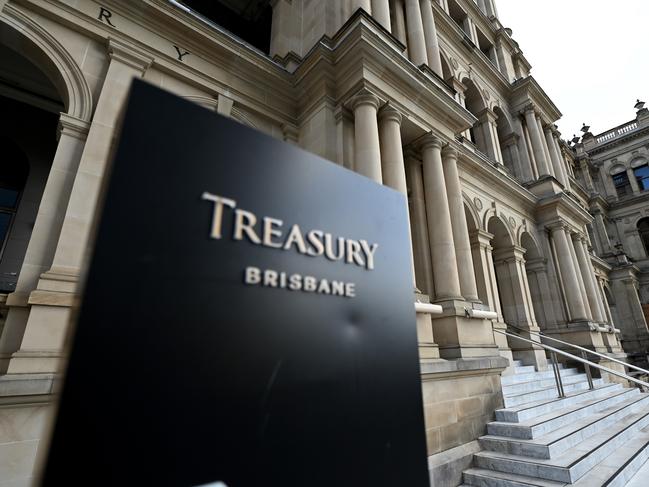Mark Timothy Grant and Nathan Trent Anderson overturn Treasury and The Star casino bans
Two punters have overturned their bans on entering Queensland’s biggest casinos which claimed the pair effectively engaged in the same dishonest conduct as a poker great.
Police & Courts
Don't miss out on the headlines from Police & Courts. Followed categories will be added to My News.
Two punters have overturned their bans on entering Queensland’s biggest casinos which claimed the pair effectively engaged in the same dishonest conduct as poker great Phil Ivey.
Mark Timothy Grant and Nathan Trent Anderson were both banned from The Star Gold Coast and Treasury Brisbane Casinos in March 2018 after playing Pontoon on consecutive days at the Gold Coast casino.
Casinos owner Star banned the men for allegedly colluding and a practice known as ‘edge sorting’, which Star alleged was dishonest and gave them an advantage the casino was unaware of.

The men appealed their bans to the Queensland Civil and Administrative Tribunal which found that they were wrongly accused of dishonesty.
The tribunal heard the men, who are friends, were seated at the same Pontoon table on February 18 and 19.
Star alleged the pair did not acknowledge each other but left the table at the same time and Mr Grant picked up his friend outside the hotel after finishing play.
Star alleged that during the game Mr Grant was seen staring at cards being dealt as they came out of the mouth of the dealing shoe.
Star later conducted a review of their table play and alleged the pair were using signals to communicate tactics.
Critically, Star identified manufacture abnormalities on the sides of some cards, the tribunal heard.

Star alleged Mr Grant was using edge-sorting in order to inform the signals he provided to Mr Anderson such as “hit”, “split”, “double” or “stand” during play.
Edge sorting involves a player exploiting to their advantage tiny differences on the edge of cards due to the manufacturing process.
The most high profile case of edge sorting involved professional poker player Phil Ivey who was found to have cheated by using edge sorting while playing a variant of baccarat at London’s Crockford Club, the tribunal heard.
The British courts found the casino was entitled not to pay the £7.7m of winnings it had withheld from Ivey.
Star alleged the conduct of Mr Grant and Mr Anderson put it “on all fours” with the Ivey case.
The men rejected the comparison. Mr Grant described himself as an advantage player who “tries to win at casino games by exploiting either flawed game design or sloppy/incompetent staff”, the tribunal heard.
He argued advantage play is not cheating or dishonest. Mr Grant admitted advising Mr Anderson on strategy through the use of hand signals and verbal communication but this was common in Pontoon.

He denied edge-sorting because the players did not touch the cards as was necessary to constitute edge sorting.
While he noticed some cards were asymmetric he could not be sure what that indicated.
Both men denied acting dishonestly or affecting the integrity of the game.
QCAT member Ann Fitzpatrick rejected the comparison to the Ivey case and said the men did not engage in edge sorting.
“I do not think any dishonest stratagem was used by Mr Grant and Mr Anderson in the sense of observing an affected card,” Ms Fitzpatrick said in her judgment.
“I find that the conduct of Mr Grant or Mr Anderson did not involve any form of dishonesty, involving lying, cheating, stealing or fraud by the ordinary meaning of the word, or that they were not honest.”
Ms Fitzpatrick ordered the bans on the men entering the two casinos be set aside.


